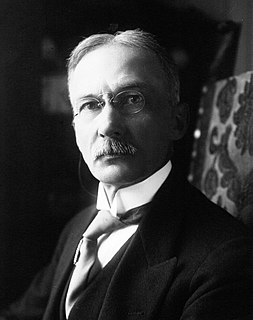A Quote by Carlo Rubbia
As a boy, I was deeply interested in scientific ideas, electrical and mechanical, and I read almost everything I could find on the subject. I was attracted more by the hardware and construction aspects than by the scientific issues.
Related Quotes
Unfortunately, there is something of a flaw in this idealized picture of the way the scientific community discovers truth. And the flaw is that most scientific work never gets noticed. Study after study has shown that most scientific papers are read by almost no one, while a small number of papers are read by many people.
It is this claim to a monopoly of meaning, rather than any special scientific doctrine, that makes science and religion look like competitors today. Scientism emerged not as the conclusion of scientific argument but as a chosen element in a worldview - a vision that attracted people by its contrast with what went before - which is, of course, how people very often do make such decisions, even ones that they afterwards call scientific.
The need for general scientific understanding by the public has never been larger, and the penalty for scientific illiteracy never harsher. Lack of scientific fundamentals causes people to make foolish decisions about issues such as the toxicity of chemicals, the efficacy of medicines, the changes in the global climate.
It is ironic that the scientific facts throw Darwin out, but leave William Paley, a figure of fun to the scientific world for more than a century, still in the tournament with a chance of being the ultimate winner... Indeed, such a theory is so obvious that one wonders why it is not widely accepted as being self-evident. The reasons are psychological rather than scientific.
As the popular trust in science fades - and many sociologists say that's happening today - people will develop a distrust of purely "scientific" psychology. Researchers in the universities haven't picked up on this; they're more interested in genetics and computer models of thinking than ever. But, in general, there is a huge distrust of the scientific establishment now.
I wish there was a serious investigation into flying saucers that wasn't conducted by crackpots. Unfortunately nearly all of the people who are interested in them kind of manufacture the evidence to fit the theories rather than the other way around. So it's very hard to find any dispassionate treatment of them. Maybe there isn't any scientific basis in which case that's why you never see any scientific evidence.
It is an odd fact of evolution that we are the only species on Earth capable of creating science and philosophy. There easily could have been another species with some scientific talent, say that of the average human ten-year-old, but not as much as adult humans have; or one that is better than us at physics but worse at biology; or one that is better than us at everything. If there were such creatures all around us, I think we would be more willing to concede that human scientific intelligence might be limited in certain respects.




































